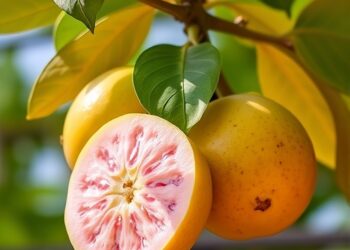Since the early 2000s, Africa’s urban population has more than doubled, reaching over 600 million in 2020. If current growth continues, the urban population is expected to double again by 2050. In Africa, the annual rate of urban area expansion has surpassed the rate of urban population growth. Globally, future urban area expansion is expected to cause significant food production losses, reduce biodiversity, and increase land-use change emissions, jeopardizing human livelihoods and the natural environment.
Since the early 2000s, Africa’s urban population has more than doubled, reaching over 600 million in 2020. If current growth continues, the urban population is expected to double again by 2050. In Africa, the annual rate of urban area expansion has surpassed the rate of urban population growth. Globally, future urban area expansion is expected to cause significant food production losses, reduce biodiversity, and increase land-use change emissions, jeopardizing human livelihoods and the natural environment.
Typically, recent research on the environmental impact of urban expansion treats it as the conversion of various land covers to urban land, focusing only on the direct effects. In a new study, published in Nature Sustainability, IIASA researchers and their colleagues demonstrate the complexity of expected urbanization and its multiple environmental impacts.
“As Africa is urbanizing the fastest, its food system is also transforming rapidly. This puts a lot of pressure on food security in what is already the most food-insecure region in the world,” notes Koen De Vos, study author and a guest research assistant in the Integrated Biospheres Futures Research Group of the IIASA Biodiversity and Natural Resources Program. “In our study, we consider both direct land-use changes and indirect effects, such as agricultural displacement and dietary shifts associated with urbanization, particularly concerning rice consumption.”
The researchers developed a method to integrate all of this information using the GLOBIOM model, creating an elaborate, complex, and multidimensional study that is unprecedented in its scope. Results show that, contrary to common belief, urban area expansion has a limited impact on food production losses, as agricultural land simply expands elsewhere. At the same time, the impact on natural lands is more significant, as it encompasses not only the direct effects of urban area expansion but also the subsequent displacement of agricultural land.
The most important environmental spillover effects arise from dietary changes, particularly rice consumption. As people eat more rice in African cities, more rice needs to be produced, resulting in greater reliance on imports and local production. Consequently, this leads to an increase in methane emissions, additional loss of natural lands, changes in water usage, and biodiversity loss.
“This result adds to the growing evidence that our diets will be one of the major drivers of planetary health,” explains Marta Kozicka, a study coauthor and IIASA researcher in the Integrated Biospheres Futures Research Group.
In their study, the research team highlights that policymakers should adopt holistic approaches in the decision-making process. Integrating indirect land-use effects and dietary shifts into land-use planning and policymaking is essential to tackle future sustainability challenges.
Reference
De Vos, K., Janssens, C., Jacobs, L., Campforts, B., Boere, E., Kozicka, M., Leclère, D., Havlík, P., Hemerijckx, L.M., Van Rompaey, A., Maertens, M., Govers, G. (2024) African food systems and biodiversity affected by urbanization via dietary shifts rather than area expansion. Nature Sustainability DOI: 10.1038/s41893-024-01362-2
Researcher contacts:
Koen De Vos
Guest Research Assistant
Integrated Biosphere Futures Research Group
IIASA Biodiversity and Natural Resources Program
devos@iiasa.ac.at
Marta Kozicka
Research Scholar
Integrated Biosphere Futures Research Group
IIASA Biodiversity and Natural Resources Program
kozicka@iiasa.ac.at
Petr Havlík
Program Director and Principal Research Scholar
IIASA Biodiversity and Natural Resources Program
Research Group Leader and Principal Research Scholar
Integrated Biosphere Futures Research Group
havlikpt@iiasa.ac.at
Press Officer
Bettina Greenwell
IIASA Press Office
Tel: +43 2236 807 282
greenwell@iiasa.ac.at
About IIASA:
The International Institute for Applied Systems Analysis (IIASA) is an international scientific institute that conducts research into the critical issues of global environmental, economic, technological, and social change that we face in the twenty-first century. Our findings provide valuable options to policymakers to shape the future of our changing world. IIASA is independent and funded by prestigious research funding agencies in Africa, the Americas, Asia, and Europe.
Journal
Nature Sustainability
Article Title
African food systems and biodiversity affected by urbanization via dietary shifts rather than area expansion
Article Publication Date
30-May-2024




